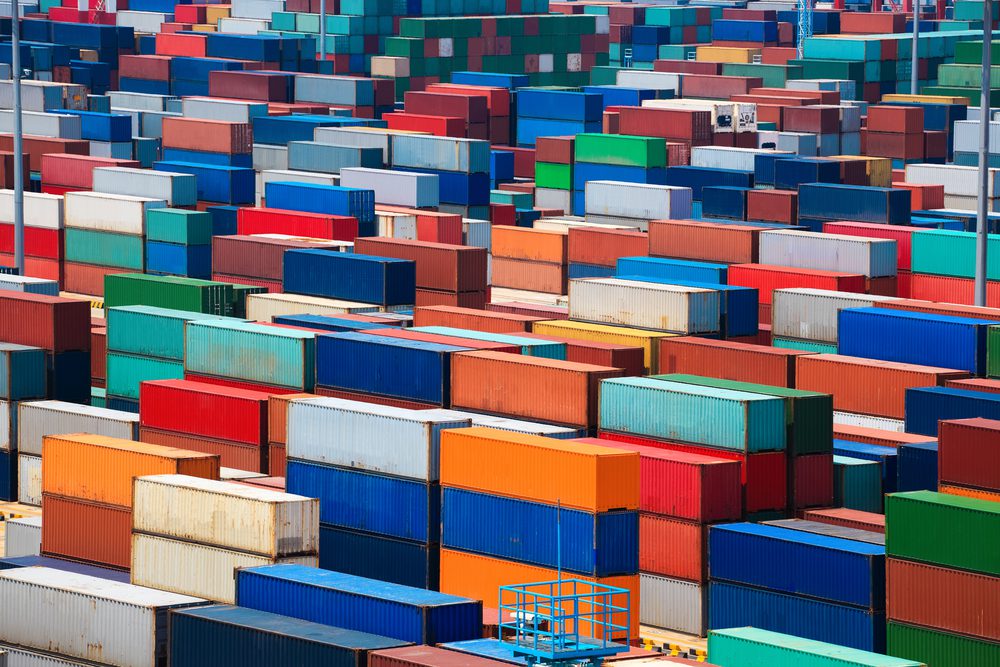PALM BEACH, Florida/BEIJING/WASHINGTON, April 4 (Reuters) – China announced additional tariffs of 34% on U.S. goods on Friday, the most serious escalation in a trade war with President Donald Trump that has fed fears of a recession and triggered a global stock market rout.
In the standoff between the world’s top two economies, Beijing also announced controls on exports of some rare earths, while Trump doubled down as well, vowing not to change course.
China added 11 U.S. bodies to the “unreliable entity” list, which allows Beijing to take punitive actions against foreign entities, including firms linked to arms sales to democratically governed Taiwan, which China claims as part of its territory.
Other impacted nations like Canada have also readied retaliation in a mounting trade war after Trump raised U.S. tariff barriers to their highest level in more than a century, leading to a plunge in world financial markets.
Investment bank JP Morgan said it now sees a 60% chance of the global economy entering recession by year end, up from 40% previously.
Wall Street fell sharply at the opening on Friday, after China retaliated with fresh tariffs a day after the Trump administration’s sweeping levies knocked off $2.4 trillion from U.S. equities.
“China comes out swinging with an aggressive response to Trump’s tariffs,” said Stephane Ekolo, Market & Equity Strategist, Tradition, London.
“This is significant and is unlikely to be over, hence the negative market reactions. Investors are afraid of a ‘tit for tat’ trade war situation.”
Trump’s team has played down the market turbulence as an adjustment that would prove beneficial in the long run.
“To the many investors coming into the United States and investing massive amounts of money, my policies will never change. This is a great time to get rich, richer than ever before!!!” Trump said in a social media post in all caps.
After Beijing’s retaliation, he posted that: “China played it wrong, they panicked – the one thing they cannot afford to do!”
Trump on Thursday had said he was open to talking to China and making a deal over TikTok by providing relief for U.S. tariffs on Chinese goods in exchange for Beijing’s approval of the sale of the Byte Dance-owned short video app.
Speaking to reporters on Air Force One, Trump said it was just an example and did not answer a question on whether plans were underway for him to talk to Chinese President Xi Jinping.
Shares of Big Tech stocks fell in premarket trading, with companies such as Apple AAPL.O and Nvidia NVDA.O having big exposure to China and Taiwan for manufacturing their products.
In Japan, one of United States’ top trading partners, Prime Minister Shigeru Ishiba said the tariffs had created a “national crisis” as a plunge in banking shares on Friday set Tokyo’s stock market on course for its worst week in years.
U.S. Secretary of State Marco Rubio on Friday disputed any economic crash, telling reporters that markets were reacting to the change and would adjust.
“Their economies are not crashing. Their markets are reacting to a dramatic change in the global order in terms of trade,” he said at a press conference in Brussels. “The markets will adjust.”
Federal Reserve Chair Jerome Powell on Friday will add his voice to a growing debate at the central bank over whether the Trump administration’s new policies are more likely to stoke higher inflation or undercut growth and employment so much the Fed will have to respond.
DIVISIONS AND MIXED SIGNALS
With European shares also tumbling to the biggest weekly losses in years, the European Union’s trade commissioner Maros Sefcovic will speak to U.S. counterparts.
“We will not shoot from the hip – we want to give negotiations every chance to succeed to find a fair deal, to the benefit of both sides,” he said on social media.
The EU is divided on how best to respond to Trump’s tariffs. Countries that are cautious about retaliating and thereby raising the stakes in the standoff with the U.S. include Ireland, Italy, Poland and the Scandinavian nations.
French President Emmanuel Macron led the charge on Thursday by calling on companies to freeze investment in the U.S.
However, French Finance Minister Eric Lombard later cautioned against like-for-like countermeasures on the U.S. tariffs, warning this would also rebound on European consumers.
The U.S. tariffs could jack up the price for U.S. shoppers of everything from cannabis to running shoes to Apple’s iPhone. A high-end iPhone could cost nearly $2,300 if Apple passes the costs on to consumers, based on projections from Rosenblatt Securities.
China is retaliating for Trump’s 54% tariffs on imports from the world’s No. 2 economy. The European Union faces a 20% duty.
“Others have maybe learned their lessons (from Trump’s last term),” said Eddie Kennedy, head of Bespoke Discretionary Fund Management, Marlborough, London.
“They are fighting back and saying we can play the same game as you and we are more in a position of strength to negotiate.”
Trump says the “reciprocal” tariffs are a response to barriers put on U.S. goods, while administration officials said the tariffs would create manufacturing jobs at home and open up export markets abroad, although they cautioned it would take time to see results.
(Reporting by Reuters newsrooms; writing by Matthias Williams; Editing by Toby Chopra)
(c) Copyright Thomson Reuters 2025.

 Join The Club
Join The Club












